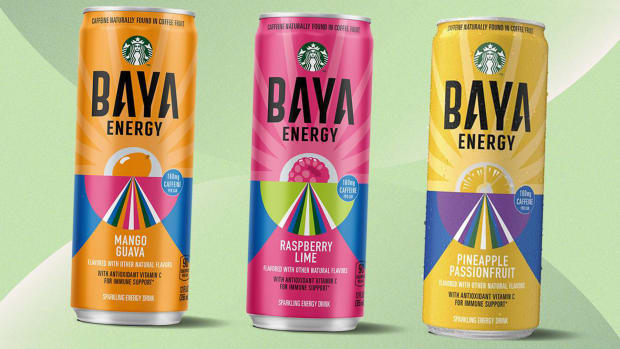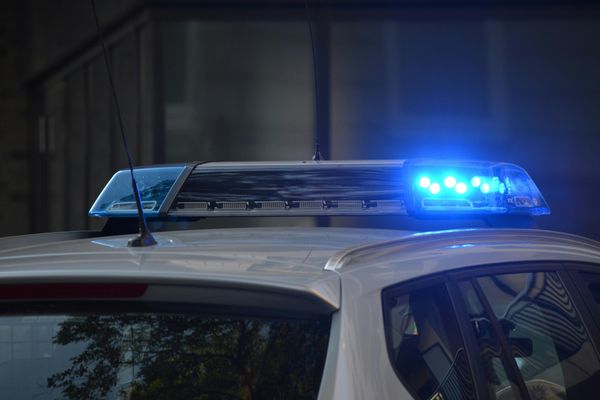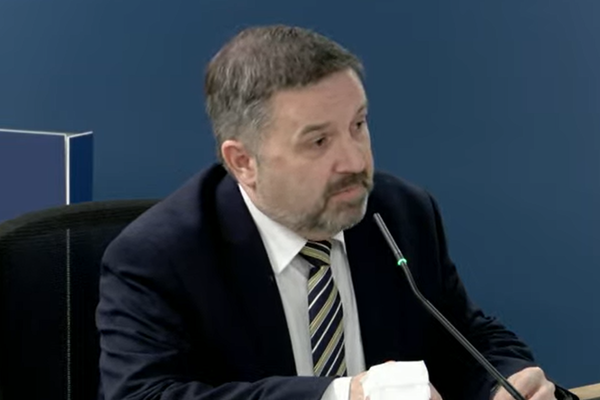Coke Energy, Josta, Jolt Cola, Vault and Coca-Cola Blak represent just a few of the failure in the hard-to-compete energy drink space.
But, with the energy drink market projected to top $28.3 billion by 2027 it's easy to see why so many companies to crack the market. Now, Starbucks SBUX has decided to try its hand in energy drinks once again with a new line of energy drinks known as Starbucks Baya Energy.
With 90 calories and 160 mg of caffeine in a 12-ounce can, the new beverages is "crafted from caffeine naturally found in coffee fruit as well as antioxidant vitamin C" and comes in the mango guava, raspberry lime and pineapple passionfruit flavors. The new product will hit Starbucks on March 1 (it is already available at some select grocery stores and gas stations) and, according to a press release from the company, cost $2.89 each.
The company timed the launch with a new oat milk dark chocolate cold brew hitting stores and two new bottled Frappuccino flavors also hitting the shelves later this month.
"Over the years, we've continued to identify new and exciting ways to expand our ready-to-drink portfolio and saw an opportunity to complement our existing coffee beverage lineup with Starbucks BAYA Energy, the brand's first beverage to launch in the energy category," Starbucks Channel Development Vice President Chanda Beppu, said in a statement.

Starbucks
Starbucks Has Tried This Before
Back in 2012, Starbucks first launched a line of lightly caffeinated drinks known as Starbucks Refreshers. Flavors including Kiwi Starfruit and Passionfruit remain popular menu items while canned refreshers remain available in some markets and can be purchased on Amazon.
That said, the new product is the first to truly fit the "energy drink" category with the amount of caffeine in each can. The drinks were developed through the North American Coffee Partnership, which Starbucks and Pepsi PEP launched together as a way to develop new energy and coffee products for grocery and convenience.
How Big Is The Energy Drink Market?
The pressure to develop this sector is, naturally, sky-high: data from Euromonitor International found that Americans consumed $18 billion worth of energy drinks in 2021. Research and Markets projects that this number will be at $28.3 billion by 2027.
The big players in the market, the Salzburg-based Red Bull and Corona, California-based Monster Beverage MONSTER currently dominate this sector in terms of sales. Pepsi, which purchased energy drink maker Rockstar Energy for $3.85 billion in 2020, now also has a major in as does the Boca Raton-based Celsius CELH, which positions itself as a "healthy" fitness drink,
But while many brands are trying to get in on the market and launch their own energy drinks, success is not guaranteed — Coca-Cola Coca-Cola pulled its Coke Energy line 18 months after launching it in U.S. and Canada due to lack of sales.
Starbucks shares are down nearly 17% year-over-year but rose just slightly after news of the new launch broke.







